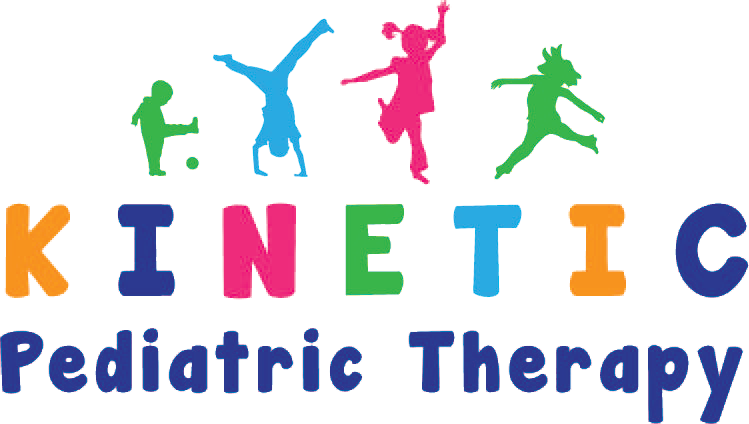
How to Navigate the Special Education System
Advocating for Your Students
Navigating the special education system can feel overwhelming, but as an educator, parent, or caregiver, advocating for students with diverse needs is essential to ensuring they receive the appropriate support. The process of advocating effectively requires a deep understanding of how the system works and how to collaborate with school teams to get the best outcomes for the child. At Kinetic Pediatric Contract Therapy, we believe that every child deserves the chance to thrive with individualized education plans (IEPs) and tailored support that meets their unique needs.
This comprehensive guide will help you understand the special education system, provide practical tips for advocating on behalf of students, and offer strategies for working collaboratively with schools to ensure that every child receives the support they deserve.
Understanding the Special Education System
The special education system is designed to support students with disabilities or diverse learning needs, providing them with the resources and accommodations necessary to achieve their full potential. Navigating this system begins with understanding the laws and structures in place that govern how services are provided.
Key Laws Governing Special Education
- Individuals with Disabilities Education Act (IDEA): This federal law ensures that children with disabilities are entitled to a free and appropriate public education (FAPE) tailored to their individual needs. IDEA mandates that schools create an Individualized Education Program (IEP) for every eligible student, outlining the specific services and supports the child will receive.
- Section 504 of the Rehabilitation Act: This law prohibits discrimination based on disability and ensures that students with disabilities receive accommodations in school settings, such as extra time on tests or modified assignments. It is broader than IDEA, covering students who may not qualify for an IEP but still need support.
- Family Educational Rights and Privacy Act (FERPA): FERPA protects the privacy of student education records and gives parents the right to access and review their child’s records. This is important when advocating, as you may need to gather documentation to support your case.
Understanding these laws is the first step in navigating the special education system and advocating for appropriate services.
Steps to Advocating for Your Students
Advocating effectively requires preparation, knowledge of your student’s rights, and the ability to collaborate with school professionals. Below are steps you can take to advocate for your student:
- Understand Your Student’s Needs
Before you can effectively advocate, it’s essential to have a deep understanding of your student’s strengths, challenges, and specific learning or behavioral needs. Review any evaluations, assessments, and reports that provide insight into their academic, social, and emotional development.
It may be helpful to work with professionals like pediatric therapists, speech-language pathologists, or occupational therapists to better understand your student’s unique needs. This knowledge will serve as the foundation for discussions with the school.
- Request an Evaluation
If you suspect that your student has a disability that may qualify them for special education services, the next step is to request an evaluation from the school. Under IDEA, schools are required to evaluate students at no cost to the family if a disability is suspected. These evaluations will assess various areas such as academic performance, behavior, communication skills, and motor skills to determine if the child qualifies for an IEP or a 504 plan.
If the school agrees to the evaluation, it will lead to a team meeting to discuss eligibility and next steps. If the school declines the evaluation, they are required to provide a written explanation.
- Know Your Student’s Rights
Once an evaluation is complete, it’s essential to be aware of your student’s legal rights under IDEA and Section 504. Children who qualify for special education are entitled to receive services that are tailored to their specific needs, including accommodations, modifications, and specialized instruction. Ensure that the educational team is following the appropriate guidelines to support your student in the classroom.
- Collaborate on the IEP or 504 Plan
If your student qualifies for an IEP or a 504 plan, you will be invited to participate in a meeting with a team of professionals, including teachers, therapists, and school administrators, to discuss the best path forward. Collaboration is key during this process.
- IEP Team Meetings: During the IEP meeting, the team will develop goals for your student, decide what services and accommodations are necessary, and outline how progress will be monitored. You, as an advocate, have the right to provide input and ask questions during this meeting. Make sure that the goals are measurable and functional to help your student make meaningful progress.
- 504 Plan Development: For students with a 504 plan, the goal is to provide accommodations that allow the student to succeed in a general education setting. This might include changes like extended time on assignments or seating arrangements to support focus.
Both plans should be reviewed annually, and you have the right to request additional meetings if you feel that your student’s needs are not being met.
IEP Goals and Objectives: How to Write Measurable and Functional Goals
- Keep Detailed Records
One of the most powerful tools you can have as an advocate is a well-organized record of all communications, meetings, and documentation related to your student’s education. Keep copies of:
- Evaluation reports
- IEPs or 504 plans
- Progress reports
- Meeting notes
- Correspondence with teachers and administrators
By maintaining accurate records, you can easily reference past decisions and track whether the agreed-upon services are being implemented.
- Monitor Progress
Once an IEP or 504 plan is in place, it’s important to monitor your student’s progress. Request regular updates from teachers and therapists to see how your student is performing relative to the goals outlined in their plan. If you feel that progress is not being made, don’t hesitate to request a meeting to discuss potential changes to the services being provided.
- Know When to Seek Help
There may be times when the school does not agree with your recommendations, or you feel that your student’s needs are not being met. In these situations, you may need to seek outside help, such as an educational advocate, a special education attorney, or a mediation service. These professionals can provide guidance and support, helping you navigate more challenging situations.
Tips for Effective Advocacy
- Build Relationships: The most effective advocacy often comes from positive relationships. By working collaboratively with teachers and school administrators, you can foster a team-based approach where everyone is working toward the same goal—your student’s success.
- Be Informed: Stay up to date on your student’s rights under IDEA, Section 504, and state laws. Knowledge is power when it comes to advocating effectively.
- Be Persistent: Advocacy can be a long process, and you may face setbacks. Keep pushing for what your student needs and don’t be afraid to ask for more information, clarification, or additional evaluations.
- Stay Calm and Professional: Emotions can run high when advocating for a child, but staying calm and professional during meetings will help you build trust and credibility with the school team.
Advocating for students within the special education system can feel complex, but with the right strategies and support, you can help ensure that every child gets the services they need to succeed. At Kinetic Pediatric Contract Therapy, we are committed to empowering children through therapy and educational services tailored to their unique needs. By understanding the laws, collaborating with the school team, and staying proactive in monitoring progress, you can effectively advocate for your student and help them thrive in school.
Whether you are just beginning to navigate the special education system or you are seeking to improve an existing plan, we are here to support you in advocating for the best outcomes for your student.
Please Share
Ready to Take the Next Step in Your Career?
If you’re an educational professional looking to take your career to the next level, explore all the Kinetic Pediatric Therapy career opportunities.
We’re looking for candidates who are ready to bring their expertise to our team and strive to provide the very best service to our clients.
We are 100% therapist owned and operated. We offer a family friendly environment that offers not only a challenging and rewarding career but a fun team of colleagues and mentors. School based therapy staff even have an option to choose a 10 or 12 month pay option. All applicants have the opportunity to interview our therapists to learn more about a career with Kinetic. You will find our Glassdoor and Indeed ratings and reviews to be among the best.




